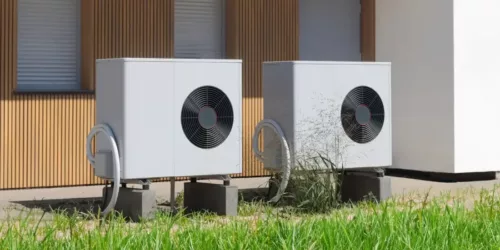Heat Pumps: Should You Get One?
- Lower energy bills and personal carbon use at the same time
- Get £7,500 off installation costs with the UK Government’s BUS scheme
The stimulus to replace your gas boiler with a heat pump is about more than energy savings. Better for the environment, the many advantages of heat pumps reflect the game-changing shift in the way we’re now making purchases.
One of the advantages of heat pumps is they're up to 4 times more efficient than gas boilers with a lifespan of around 20 years. An air source pump is an ideal low carbon heating solution for domestic homes. Easy to install and maintain, air source heat pumps fit seamlessly into contemporary living, delivering heating and hot water on demand.
With a pump system in place, there’s no interruption to family life, meaning renewable heating is finally accessible to the masses. Read about how energy efficient a heat pump is.
Interested in a heat pump? Use our quote comparison tool to find out how much you'd pay. It only takes a minute.
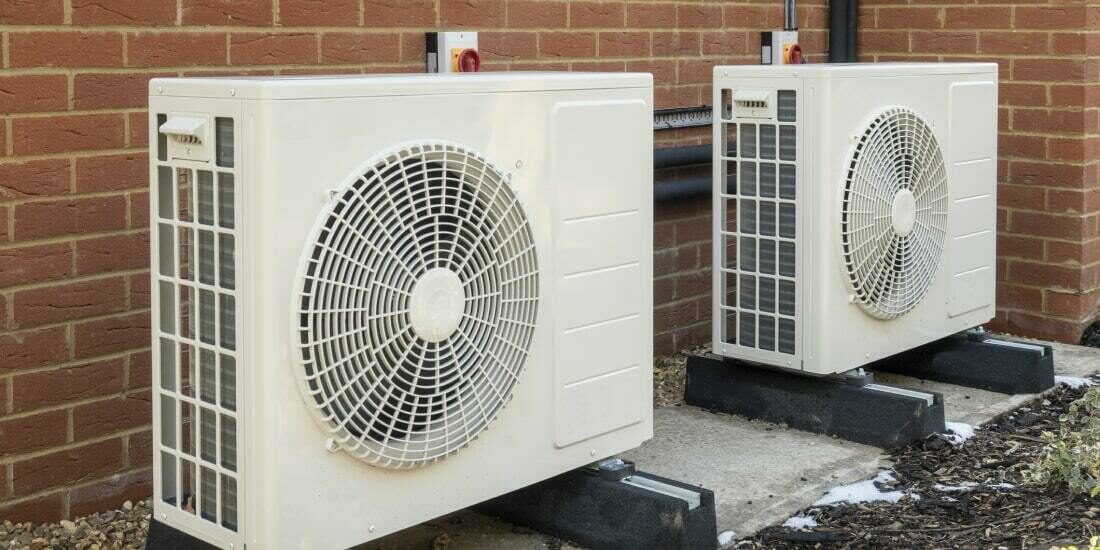
What's On This Page?
Click the links below and head straight to a specific section of the article.
What Is a Heat Pump?
Operating in place of the gas boiler in your existing system, heat pumps transform outside air into heating and hot water for your home. Once fitted to an outside wall, an air source heat pump works at a high level of efficiency. Low carbon and requiring little energy to function, they can help to lower your energy bill whilst ending the carbon emissions your gas boiler currently emits.
Ground Source Heat Pumps
Air source heat pumps are not to be confused with ground source versions. Ground source pumps are a more complex type of heat pump that’s much more costly to install. Consisting of an underground pipe network, ground source heat pumps use natural heat found underground to heat your home.
There are also hybrid heat pumps, which are a mixture of both an air source heat pump and a traditional gas combi boiler.
What Are the Advantages of Heat Pumps?
With the UK Government already committed to install 600,000 heat pumps per year by 2028, interest in heat pump installation is high. To help you decide whether a heat pump is right for you, here’s the top 6 reasons why heat pump technology is the fast-growing renewable energy of choice worldwide.
- Energy Efficiency: An energy efficient heat pump makes better use out of less heat. Unlike the unbalanced high-low delivery of traditional gas boilers and radiators, a heat pump system provides a consistent, well-regulated temperature which requires less energy and is more pleasing for users
- Low Carbon: With a low carbon heat pump system in place, you’ll finally put an end to the damaging carbon emissions produced by your gas boiler
- Future-Ready: Heat pump technology is heavily backed by the government and popular worldwide so you know you’re choosing a well-known, renewable heating solution which will ensure you’re ready for our low carbon future as well as any further rewards for switching to renewable heating
- Practical: A heat pump system is a straight switch for your gas boiler. They don’t involve any change to everyday life so you can continue to enjoy heating and hot water in the same way you did before
- Lasts Longer: A heat pump usually lasts for around 20 years, giving you 10 extra years of service than a gas boiler, which has an average lifetime of around 10 years
- Safer: Without a gas boiler in your home, you don’t have to worry about gas-related hazards such as carbon monoxide poisoning. For your radiators, heating at a more consistent temperature means you won’t have radiators in the home which are dangerously hot
What Are the Disadvantages of Heat Pumps?
- Still Uses Electricity: A heat pump in operation uses a small amount of electricity to run. However, superb energy-efficiency means heat pumps only use a low quantity of electricity whilst creating more energy than they use. All this means you get more heat for your money. Additionally, government targets are already chalked up to ensure low carbon electricity is in place in the coming years and electricity prices decrease
- Radiators and Insulation: For maximum energy efficiency, larger radiators or/and underfloor heating are usually installed alongside a heat pump system to improve heat dispersal. In addition, property insulation is also checked. Though each element creates an extra cost, all three are cost-saving devices to improve energy efficiency and lower your energy bills
- High Purchase Cost: Though it is expensive to purchase a heat pump, the Boiler Upgrade Scheme (BUS), a replacement for the RHI Incentive, means you’ll get £7,500 off purchase costs making it more affordable
How Does a Heat Pump Work?
They work by delivering heat and hot water at a consistent temperature. Super-efficient operation means a heat pump produces more energy than it uses.
Using less energy to keep your family warm, your heat pump will drive down the amount of energy you consume whilst putting an end to the harmful waste gases produced by your gas boiler.
Heat pumps work by sucking external air into the system. The air is passed over a liquid refrigerant in a heat exchanger under pressure. The pressure creates heat, warming the air to the desired temperature which is then released into your heating system.
Although a heat pump is designed to be ultra-efficient, there are a number of factors which will affect some of their advantages and save you energy and money.
- Using Lots of Heat: If you leave your heating on for long periods, keep it running at a high temperature or have lots of rooms to heat, you’ll make less savings
- Poor Heat Distribution: Using larger radiators or/and underfloor heating with your heat pump plus updated property insulation will ensure heat is spread and retained effectively throughout your home. Better heat distribution means it takes less work for your home to feel warm
- Shaded Location: The installation site for your air source heat pump should ensure it receives the best levels of unblocked sunlight throughout the day so your heat pump has less work to do
Learn more about how they work in our heat pumps guide or use our online calculator to get a free quote and see how much you’d pay for a new heat pump.
Heat Pump Costs, UK
Installation Costs
As they come in a range of different sizes and styles, their costs vary. Typically, you can expect to pay around £12,000 for a new heat pump. You will find a number of models available for around £8,000 and the BUS will help to greatly reduce costs. You can see the typical prices seen last year for air source heat pumps and what you would have paid with the BUS in the interactive graph below.
Help With Installation Costs
The Boiler Upgrade Scheme will give you £7,500 off the cost of heat pump installation. The scheme is organised so your installer deals with all the admin for you. Grants for heat pumps explains more about the scheme.
How Do Heat Pumps for Homes Compare with Gas Boilers?
Before you can enjoy the advantages of heat pumps, it's best to compare heat pumps for homes with domestic gas boilers requires careful analysis because they are not like for like systems.
Excellent energy efficiency means heat pumps produce more heat than they use - unlike gas boilers.
Although we may currently pay around 4 times more for electricity per kWh, the heat a heat pump system delivers per kWh is 4 times higher than a gas boiler. In fact, with better heat dispersal and regulation as well as improved property insulation, it will take less energy to heat your home with a heat pump.
It is also worth noting that wholesale gas prices are rising whilst electricity costs are set to fall. Early predictions by the CCC back in 2017, estimated gas bills would rise by over £200 by 2030 yet today we know that figure is on course to be even greater.
The answer? Though the price per unit is higher for electricity, you’ll use less energy with a heat pump system, delivering a saving of at least £100 per year. At the same time, you’ll end the harmful carbon emissions your gas boiler currently produces.
The best heat pumps in 2024 helps decide which heat pump would be best for your needs. Alternatively, use our fast online calculator to get a tailored quote to see how much you’ll pay for a new heat pump.
Advantages Ready For The Future
With energy one of the biggest contributors to greenhouse gases, our reliance on gas heating is about to come to an abrupt end. According to Sky News, the Climate Change Committee CCC has suggested gas boilers should not be sold beyond 2033. Everything you need to know about the gas boiler ban gives easily digestible facts.
We don’t yet have an exact date for the phasing out of gas boilers in the UK but there are strong indications it will happen in the years close to the 2030 Paris Agreement.
Gas boiler installations are already due to stop by 2035 whilst worldwide installation of heat pumps is growing fast. By 2025, according to The Guardian, the CCC predict we’ll see around 415,000 heat pumps installed each year, rising to 1 million by 2030.
For UK homeowners, the biggest barrier to heat pump installation has been removed with the introduction of the Boiler Upgrade Scheme (BUS). Providing homeowners with a £7,500 grant to subsidise installation costs, the scheme means many gas installers now offer heat pump installation with BUS grant admin completed as part of the service.
Speed is of the essence because the funding is only earmarked for three years (which is equivalent to installation in 90,000 homes) so get in quick before the funding runs out.
Let’s take a closer look at the advantages of heat pumps that can offer you and your family, including how much you can expect to save whilst reducing your personal carbon consumption. Organisation via your most popular questions about the benefits of heat pumps for homes means we’ll answer the following.
Summary
The advantages of heat pumps are in abundance, they're energy efficient, practical, last a long time and safe. With the UK Government already committed to install 600,000 heat pumps per year by 2028, it's better to get involved now and make the most of the advantages of heat pumps. If you'd like to know more, just enter a few details and we'll take care of the rest.
Related articles
View all Heat Pump articles
Samsung Air Source Heat Pumps: Overview and Costs
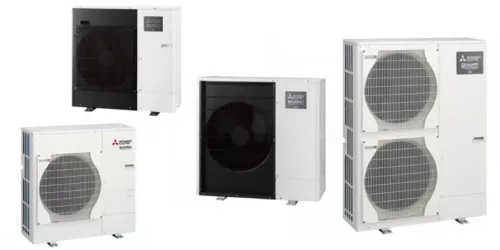
Mitsubishi Air Source Heat Pumps: Overview and Costs
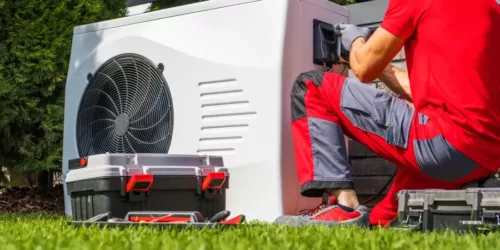
The Cost of an Air Source Heat Pump Service
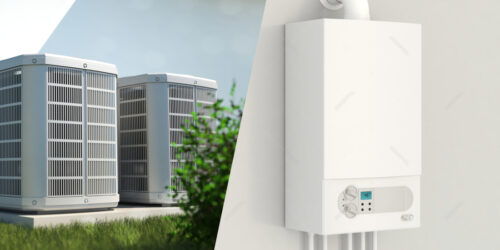
Heat Pump vs Gas Boiler - What's Better?
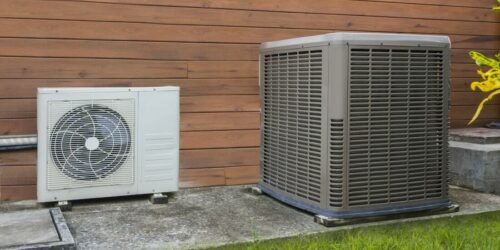
Different types of heat pumps: what’s available?
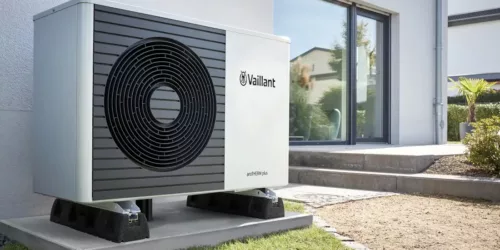
The Ultimate Guide to Vaillant Heat Pumps
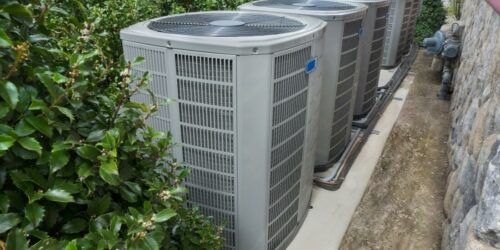
How Do Air Source Heat Pumps Work?
